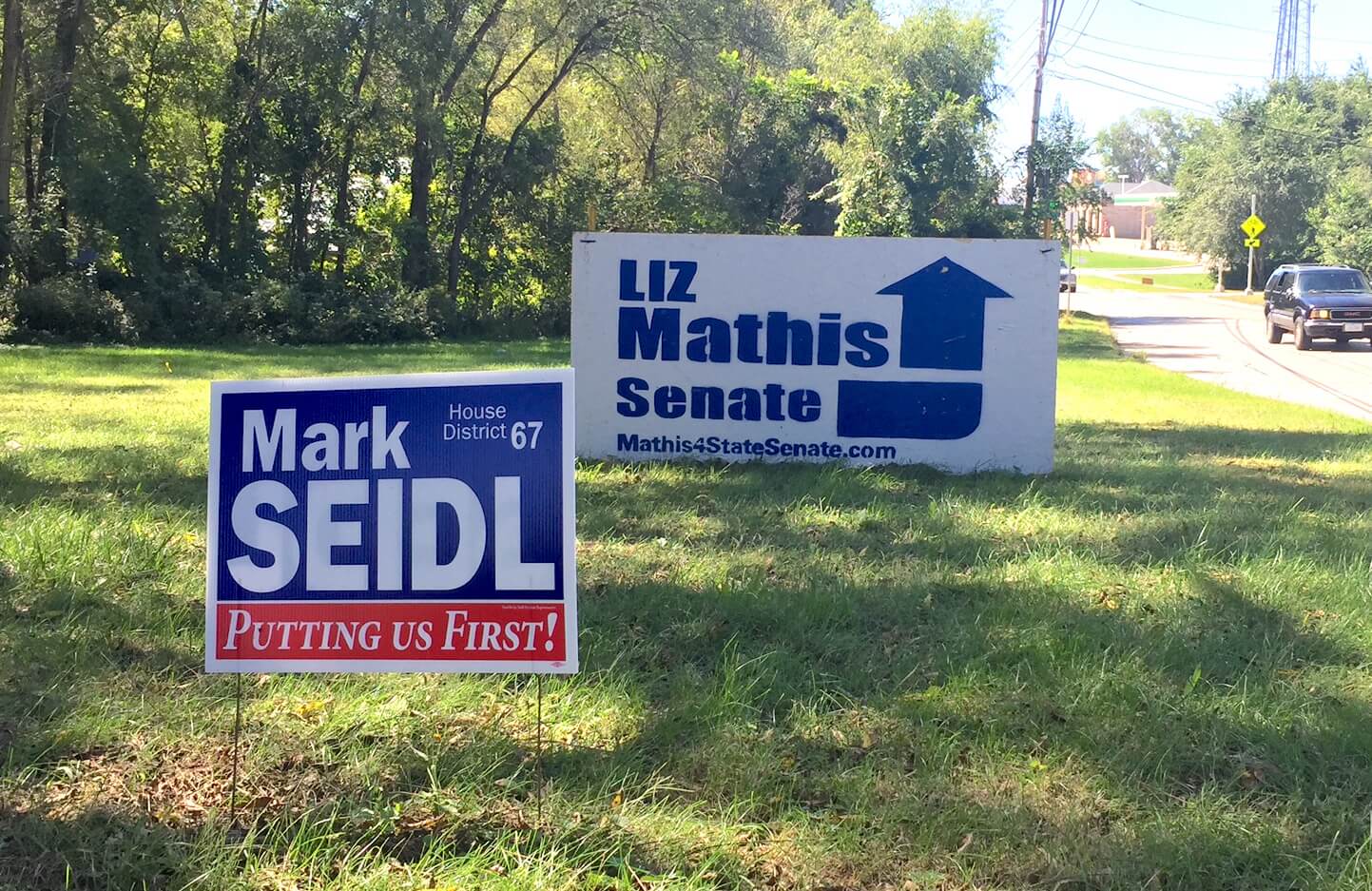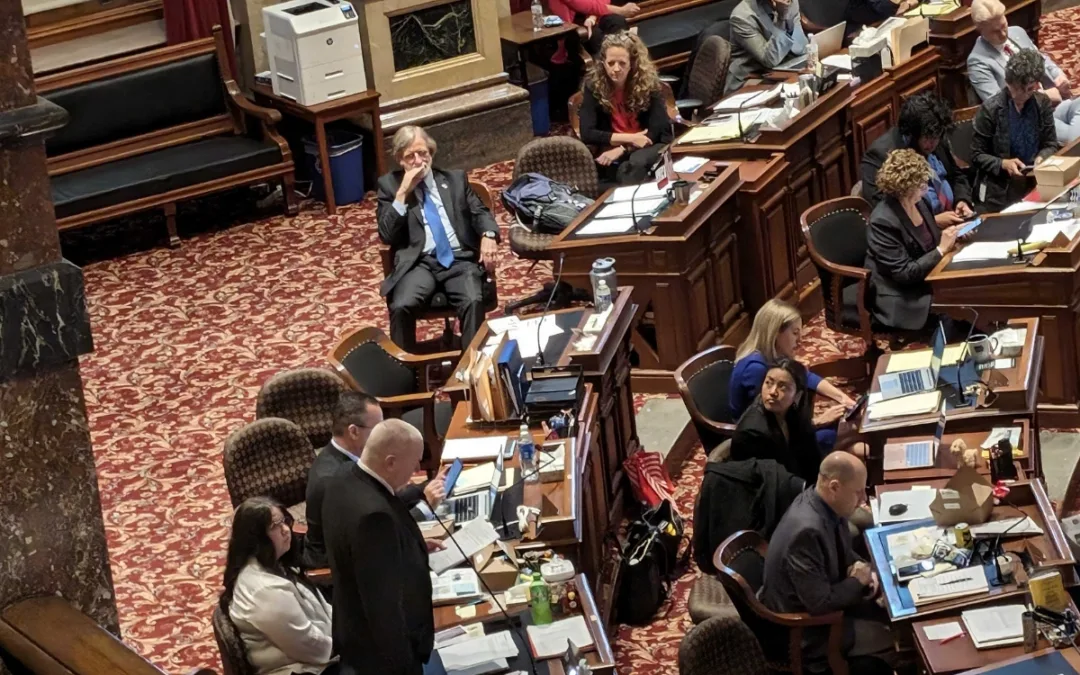
I watched the first 2012 debate between President Barack Obama and Mitt Romney in the basement of a fellow campaign staffer’s supporter housing in Cedar Rapids. Everyone was disappointed in Obama’s widely-criticized first outing. Before that night we knew we had a competitive race, but were feeling very good about the November result, with the potential for a Democratic wave. This was the first time the Democrats’ chances for 2012 seemed in real doubt, which was particularly concerning since the group of us huddled around the TV were all staffers for down-ballot candidates.
“Obama will probably recover from this, but we just lost hundreds of state legislative races around the country,” one of my friends running a state house race lamented.
Down-ballot Democrats are getting increasingly worried in 2016 as they knock on doors of voters who seem largely disinterested and disgusted with this year’s elections. There’s fear young voters will not turn out, a key part of every Democratic candidate’s coalition. And in Iowa, where the population is largely white, candidates can’t depend on strong minority turnout to change things in swing district.
This past week I went by the Benton County Democrats’ candidate meet-and-greet in the small town of Urbana to see how local Democratic campaigns were holding up in the year of Clinton and Trump. Benton County itself has a Republican registration advantage, but not an overwhelming one, and is home to growing bedroom communities for Cedar Rapids. It’s a place where Democrats can and do win at the local level, but where they need a good or at least break-even year on the national level to have a shot.
“I don’t engage in the upper-ticket very much,” explained Paula Denison, the candidate running for State House against Dawn Pettengill, a six-term Republican incumbent. “That’s an argument I just don’t want to have in my five minutes on the doors.”

Denison chats about her House campaign with local Democrats
What Denison does talk about at the doors is Iowa-specific issues, and she said she’s hearing a lot of concerns about Governor Terry Branstad’s Medicaid privatization and education funding. Both are issues Democrats would benefit from, but the presidential race is the much larger driver of voter turnout, or lack thereof.
“I see a lot of frustration, they’re tired of the negativity,” said Vicky Schwenker, the Democrat running for county auditor, who has talked with some people who simply won’t vote. “Instead of talking about myself, I talk more about the importance of voting … There are people at the state and local level that need your support.”
All of the local candidates see the nastiness of the presidential race as depressing turnout. Some are also concerned about a pervading sense of cynicism among some Democratic voters toward Clinton and the overall system.
“One thing you hear so often is all the politicians are crooked and corrupt,” observed Dennis Mathahs, a candidate for state senate who has been campaigning on water quality and income equality measures. “I don’t believe that is true, but to the extent that people believe it, then that will stop good people from getting into politics.”

Dennis Mathahs, candidate for state senate, needs good student turnout at Grinnell College
The first of the three presidential debates tonight between Clinton and Trump will greatly shape the final course for this election. A winning performance by Clinton that reinvigorates the base could bring out the votes these local candidates need to win in November. A lackluster showing could put their victories out of reach, no matter how many doors they knock on personally.
So they’ll be watching tonight with high hopes and a good share nervousness over how it turns out.
“Whatever the answer asked, I hope they answer it, instead of saying something negative about the other one,” said Schwenker. “I think that would make people feel more positive about the campaign and feel better about going out to vote.”

On the flip side, a bad night for Trump would be advantageous as well.
“The best thing for me would be for Trump to be exposed for the fraud that he is,” said Mathahs. “That would negatively impact Republican turnout, which would help me win.”
But they’re all aware of the reality of the situation, which is that Trump has an appeal that’s gotten through to voters, while Clinton has struggled at times to inspire excitement.
“It is a problem because we have a wonderfully intelligent, articulate, thoughtful, planning candidate in Hillary Clinton,” said Denison. “And then we have this electrifying, charged-up, fly-by-the-seat-of-our-pants candidate in Trump. I want her to stay above his fray, but I don’t know how electrifying that will be. I certainly don’t want her to stoop to his level, but we want the engagement.”
One Benton County candidate, Joan Flecksing, a 39-year-old recreation area manager for the DNR who is of German, Mexican and Native American descent, sees real opportunity in her fellow female candidate at the top of the ticket. Flecksing is running for a county supervisor seat, and would be only the second female to hold that job in Benton County. That would be a change in what she sees as a change election. It’s just a question of who represents that this year.

Joan Flecksing, candidate for an open supervisor seat, talks with activists
“One thing we have to realize about Mr. Trump is, what is it that people like about him? They like that he speaks plainly, he doesn’t sugar-coat it. He’s sort of a realist in his own way,” Flecksing said. “As I campaign locally, I’ve had people flat-out say to me we need change, and you represent change. Whatever it is that represents change is what they are seeking. Hillary to me represents change, but Hillary is a Clinton, so from that perspective we’ve had the Clinton’s a long time.”
Trump has certainly offended a lot of people during his run with that “plain-speak” mentality, especially among minorities, something Flecksing has seen up close.
“The minority vote has really been ostracized by Mr. Trump,” Flecksing said. “That’s done, he’s dug that hole and put the dirt back in.”
The problem for Democrats, however, especially in swing districts in Iowa, is that there aren’t many minority voters around. Benton County is 97.9% white.
Whatever happens in the debate tonight, it will need to excite and motivate Democratic and swing voters across a wide spectrum for these down-ballot candidates to benefit. And if it doesn’t, they’ll keep making the case at the doors that local candidates still make an impact in their lives and still need their support.
“There are real differences between the policies, whether you don’t like Hillary or Donald,” said Mathahs. “Even if you don’t vote in the presidency, please go out and support down-ballot Democrats because it’s going to make a huge difference in Iowa. If the Republicans take the Iowa State Senate, we’re going to be just like Wisconsin and Kansas before you know it. Water quality standards get even worse. Education quality gets worse.”
by Pat Rynard
Posted 9/26/16
Politics

AEAs cutting workers in wake of Republican legislation
Iowa legislators said a new bill cutting money for agencies that help students with disabilities wouldn't affect services. But area education...

He said what? 10 things to know about RFK Jr.
The Kennedy family has long been considered “Democratic royalty.” But Robert F. Kennedy, Jr.—son of Robert F. Kennedy, who was assassinated while...
Local News

No more Kum & Go? New owner Maverik of Utah retiring famous brand
Will Kum & Go have come and gone by next year? One new report claims that's the plan by the store's new owners. The Iowa-based convenience store...

Here’s a recap of the biggest headlines Iowa celebs made In 2023
For these famous Iowans, 2023 was a year of controversy, career highlights, and full-circle moments. Here’s how 2023 went for the following Iowans:...





